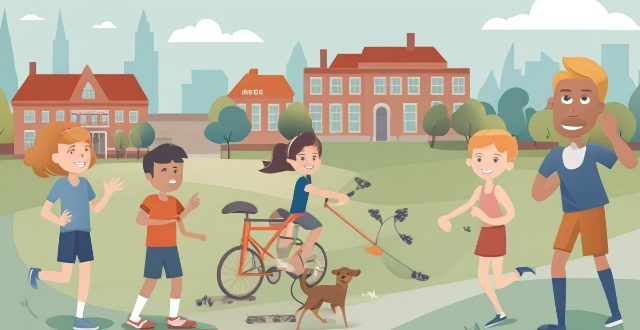The text discusses the role of sports education in reducing obesity rates among youth. It highlights how sports education promotes physical activity, teaches healthy habits, builds self-esteem and confidence, and provides social support. The author emphasizes that by incorporating sports education into schools and communities, young people can develop lifelong habits that promote good health and reduce their risk of obesity.

The Role of Sports Education in Reducing Obesity Rates Among Youth
Introduction
Obesity is a growing concern among youth worldwide. It is a condition where excess body fat accumulates to the extent that it may have an adverse effect on health. One of the most effective ways to combat obesity is through sports education, which plays a crucial role in reducing obesity rates among young people.
How Sports Education Helps
Promotes Physical Activity
Sports education encourages physical activity, which is essential for maintaining a healthy weight. Regular exercise helps burn calories, builds muscle mass, and improves overall fitness levels. By promoting physical activity, sports education can help young people stay active and reduce their risk of becoming overweight or obese.
Teaches Healthy Habits
Sports education teaches young people about the importance of developing healthy habits, such as eating a balanced diet and getting enough sleep. These habits are crucial for maintaining a healthy weight and reducing the risk of obesity. By teaching young people how to make healthy choices, sports education can help them develop lifelong habits that promote good health.
Builds Self-Esteem and Confidence
Sports education can also help build self-esteem and confidence in young people. Participating in sports and physical activities can help young people feel better about themselves and their abilities. This sense of accomplishment can lead to increased self-esteem and confidence, which can motivate them to continue making healthy choices and staying active.
Provides Social Support
Sports education provides social support by bringing young people together to participate in physical activities. This sense of community can help young people feel more connected to others and provide motivation to stay active and maintain a healthy lifestyle. Additionally, participating in team sports can teach young people valuable social skills, such as cooperation and communication, which can benefit them in other areas of their lives.
Conclusion
In conclusion, sports education plays a vital role in reducing obesity rates among youth by promoting physical activity, teaching healthy habits, building self-esteem and confidence, and providing social support. By incorporating sports education into schools and communities, we can help young people develop lifelong habits that promote good health and reduce their risk of obesity.